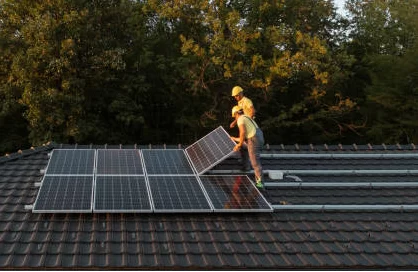The Benefits and Challenges of At Home Solar Panelse
In recent years, the use of at home solar panelse has gained significant traction as more and more homeowners look for sustainable and cost-effective energy solutions. This trend is not only driven by environmental consciousness but also by the potential economic benefits and increased energy independence that solar panels can offer. However, like any technology, there are both benefits and challenges associated with installing and using at home solar panels.

One of the most obvious benefits of at home solar panelse is the potential for significant cost savings on electricity bills. By generating your own electricity, you can reduce or even eliminate your reliance on the grid, especially in areas where electricity prices are high. For instance, a family in a sunny region who installs a sufficient number of solar panels may find that their monthly electricity bill is reduced by a considerable amount. Over time, the savings can add up and even offset the initial cost of installation.
Another advantage is the positive impact on the environment. Solar energy is a clean and renewable source of power, meaning it does not produce greenhouse gas emissions or contribute to air and water pollution. By choosing to use at home solar panelse , homeowners are taking a step towards reducing their carbon footprint and helping to combat climate change
Energy independence is another key benefit. With solar panels on your roof, you are less vulnerable to power outages and fluctuations in the electricity grid. This can provide peace of mind, especially during extreme weather events or other situations that might disrupt the normal supply of electricity.
However, there are also challenges to consider. The upfront cost of installing at home solar panelse can be substantial. This includes the cost of the panels themselves, inverters, mounting equipment, and installation labor. Although the price has been decreasing over time, it can still be a significant investment for many homeowners.
Installation can also pose difficulties. Depending on the roof structure and local building codes, the process may be complex and require professional assistance. In some cases, obtaining the necessary permits and approvals can be time-consuming and bureaucratic.
The efficiency of solar panels is another factor. Their performance can be affected by factors such as weather conditions, shading from nearby objects, and the angle and orientation of the panels. In locations with less sunlight or during cloudy days, the energy output may be reduced.
Despite these challenges, there are numerous success stories of at home solar panel installations. For example, the Smith family in a rural area was able to install a large solar panel system that now meets most of their energy needs throughout the year. They were able to take advantage of government subsidies and financing options to manage the initial cost and have seen a significant reduction in their electricity bills.
The Jones family in a suburban neighborhood installed solar panels on their roof and combined it with a battery storage system. This allowed them to store excess energy generated during the day for use at night or during power outages, further enhancing their energy independence.
In conclusion, at home solar panelse offer a range of benefits, including cost savings, environmental friendliness, and energy independence. However, it’s important for homeowners to carefully consider the challenges such as upfront costs, installation complexities, and efficiency factors before making a decision. With proper research and planning, many families can successfully embrace solar power and enjoy its numerous advantages.
